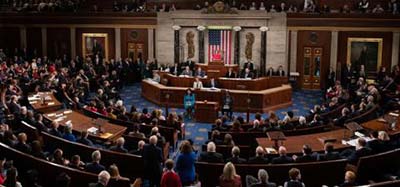
MBA, Trade Groups Ask House Approval of Bill Addressing LIBOR ‘Tough Legacy’ Contracts

The Mortgage Bankers Association and nearly two dozen industry trade groups asked House leaders to secure approval of legislation that would address “tough legacy” contract that currently reference the soon-to-be-obsolete London InterBank Offered Rate.
The Dec. 7 letter to House Speaker Nancy Pelosi, D-Calif., and Minority Leader Kevin McCarthy, R-Calif., urges House approval of H.R. 4616, the “Adjustable Interest Rate (LIBOR) Act.” Introduced in July by Rep. Brad Sherman, D-Calif., the bill would allow language in contracts to be amended or modified so that they have equal treatment once LIBOR is no longer published in June 2023.
After June 2023, all tenors of U.S. dollar LIBOR, one of the most important financial benchmarks that underpins nearly $200 trillion in financial contracts, will cease to be published. The letter noted as a result, trillions of dollars of hard to modify financial contracts, securities and loans exist that use LIBOR – known as “tough legacy” contracts – that are unable, before this end date, to either convert to a non-LIBOR rate or amend the contracts to add adequate fallback language to another rate. Without federal legislation such as H.R. 4616 to address these contracts, the letter said investors, consumers and issuers of securities could face years of uncertainty, litigation and a change in value.
“This would thereby create ambiguity that would lead to a reduction in liquidity and an increase in volatility,” the letter said. “H.R. 4616 provides a solution for these ‘tough legacy’ contracts that have insufficient fallback language and cannot otherwise be amended among the parties. The legislation is narrowly crafted to allow parties to contracts that already have effective fallback provisions to opt-out of the legislation and to only apply to tough legacy contracts so that new or future business will not be affected.”
In addition, the letter noted the legislation offers uniform, equitable treatment for all U.S. contracts that fall under the federal legislation, creating a safe harbor from litigation for parties that are covered by the legislation and prevents otherwise inevitable litigation costs and gridlock.
“The need for uniform federal legislation has been expressed by consumer groups, investors, financial regulators and industry participants,” the letter said. “We wholeheartedly support the Adjustable Interest Rate (LIBOR) Act and ask that you and all Members of the House of Representatives vote in favor of this critical legislation.”
